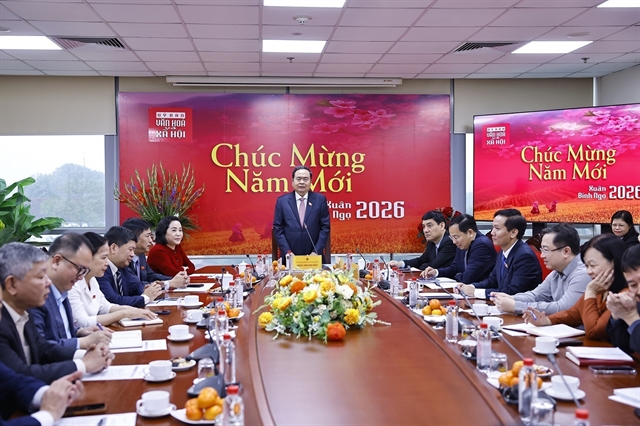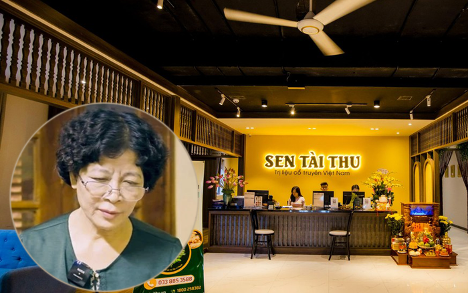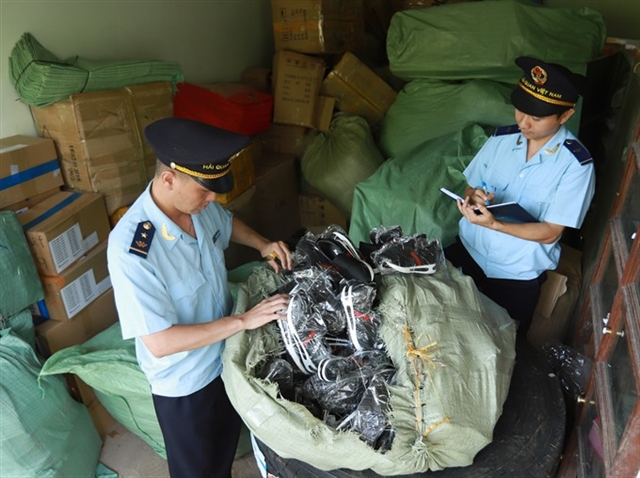 Economy
Economy
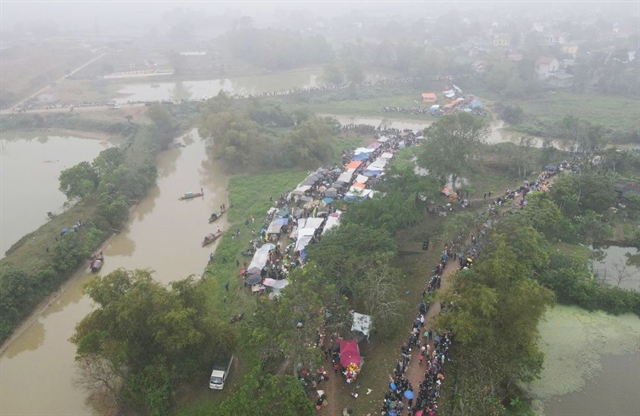
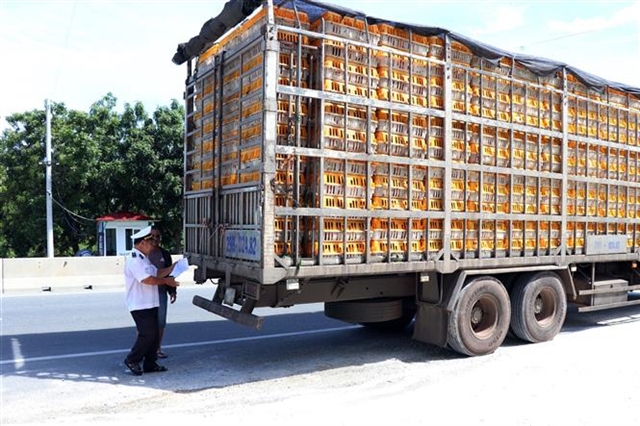 |
| Officials inspect the transport of livestock and poultry at the animal quarantine station in Thuận Bắc district in Ninh Thuận Province. — VNA/VNS Photo Công Thử |
HÀ NỘI — The Ministry of Public Security has warned that animal smuggling has evolved with more sophisticated methods, posing risks of importing diseases into Việt Nam and causing significant economic losses.
Deputy Director of the C05 Department under the Ministry of Public Security, Colonel Lê Thơm, noted that the smugglers are using different forms to get livestock illegally into the country.
For instance, in Quảng Ninh Province, smugglers have shifted from trafficking live animals to smuggling poultry eggs and aquatic species, which are easier to distribute and conceal.
According to Thơm, due to price disparities and high profits, many individuals have been recruited to participate in smuggling activities which also continue to include bigger animals.
“In the southwest region, smugglers pay up to VNĐ800,000 per buffalo or cow herded across the border,” he said.
In 2024, the department handled over 300 cases of smuggling violations involving 188 individuals, imposed fines exceeding VNĐ8 billion, and prosecuted 11 cases involving 18 defendants.
On December 24, 2024, the police dismantled a network smuggling pigs from Thailand into Việt Nam for consumption. Smugglers were caught red-handed transporting 339 tonness of pigs across the border in Tây Ninh province.
On January 11, 2025, the police caught a facility in Đức Hòa district in Long An province preparing 900 diseased pigs for slaughter and sale. Testing on January 13 revealed that 19 of 24 samples were positive for diseases including African swine fever and porcine reproductive and respiratory syndrome. The infected pigs were subsequently destroyed as required by food husbandry regulations.
Deputy Minister of Agriculture and Rural Development Phùng Đức Tiến emphasised that while the livestock industry has significant growth potential, smuggling poses substantial risks and is one of three major issues requiring attention.
He highlighted the importance of industrial-scale, biosecure production to boost exports and stressed the need to tighten import controls and coordinate with local authorities to combat animal smuggling and the trafficking of animal products.
“We know that smuggled breeding stock is the root cause of outbreaks such as avian influenza, foot-and-mouth disease, lumpy skin disease and African swine fever, which result in tremendous economic losses,” he said, citing that African swine fever alone has caused losses amounting to VNĐ30 trillion.
Tiến stressed that local veterinary agencies must lead efforts in coordination with traffic police and market management forces to monitor the transport and sale of smuggled poultry and livestock. He also emphasised that provincial chairs cannot remain uninvolved in addressing this issue.
Focusing on the southern provinces, which attract world-class livestock enterprises, Tiến warned that allowing smuggling would be akin to: “shooting ourselves in the foot.”
“Smuggling operations are highly complex, involving diverse locations, actors and tactics. However, over the past two years, anti-smuggling efforts have deepened, with clear identification of targets, locations and behaviours, supported by proactive participation from various forces,” he said.
Tiến called on forces such as the police, border guards and customs officials, as well as local authorities, to intensify their efforts and completely suppress smuggling activities based on established intelligence.
The ministry has issued a directive to provincial leaders, urging them to coordinate units such as traffic police with veterinary forces to fulfill their responsibilities.
Regarding policy mechanisms, Tiến proposed reviewing legal documents, decrees and circulars to strengthen deterrence through higher penalties for smuggling violations.
He also emphasised the need for more active participation from management agencies and local authorities in tackling the issue, treating it as a critical mission.
Additionally, he warned that if smuggling persists in certain areas, the ministry is prepared to recommend severe actions to the Government to address such negligence effectively. —VNS

